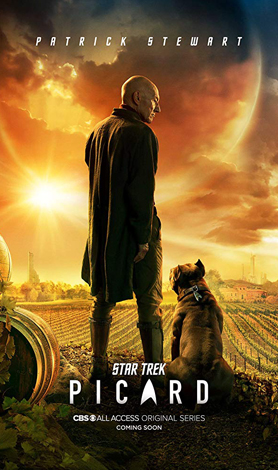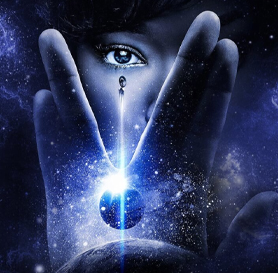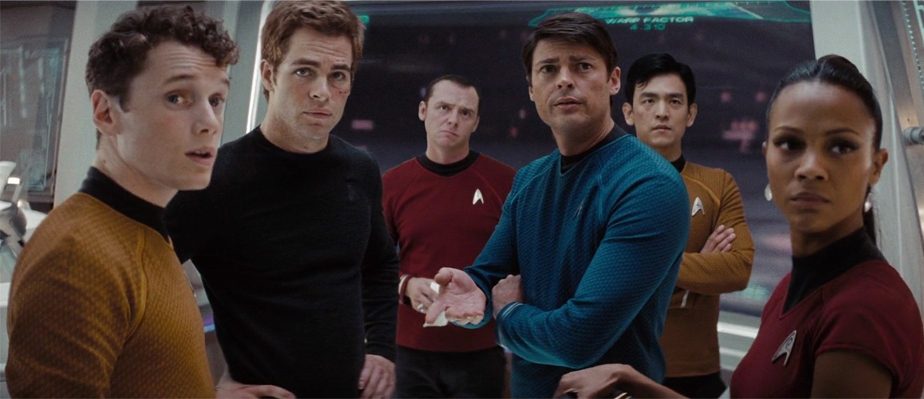



In creating Star Trek, Gene Roddenberry was inspired by the Horatio Hornblower novels, the satirical book Gulliver's Travels, and Westerns such as the television series Wagon Train. These adventures continued in the 22-episode Star Trek: The Animated Series and six feature films. Five other television series were eventually produced: Star Trek: The Next Generation follows the crew of a new starship Enterprise, set a century after the original series; Star Trek: Deep Space Nine and Star Trek: Voyager are set contemporaneously with The Next Generation, and Enterprise is set before the original series in the early days of human interstellar travel. The most recent Star Trek television series, Star Trek: Discovery, airs exclusively on the digital platform CBS All Access. The adventures of The Next Generation crew continued in four additional feature films. In 2009, the film franchise underwent a reboot with the creation in an alternate timeline, or the Kelvin Timeline, named after a starship featured in the film Star Trek. This film featured a new cast portraying younger versions of the crew from the original show; their adventures were continued in Star Trek Into Darkness (2013). Its sequel, Star Trek Beyond (2016), was released to coincide with the franchise's 50th anniversary.
Star Trek has been a cult phenomenon for decades. Fans of the franchise are called Trekkies or Trekkers. The franchise spans a wide range of spin-offs including games, figurines, novels, toys, and comics. Star Trek had a themed attraction in Las Vegas that opened in 1998 and closed in September 2008. At least two museum exhibits of props travel the world. The series has its own full-fledged constructed language, Klingon. Several parodies have been made of Star Trek. In addition, viewers have produced several fan productions. As of July 2016, the franchise had generated $10 billion in revenue, making Star Trek one of the highest-grossing media franchises of all time.
